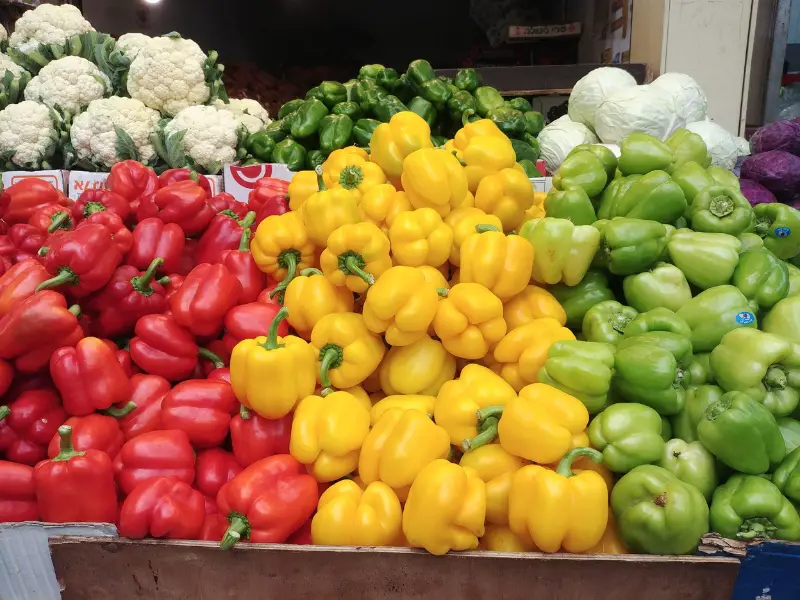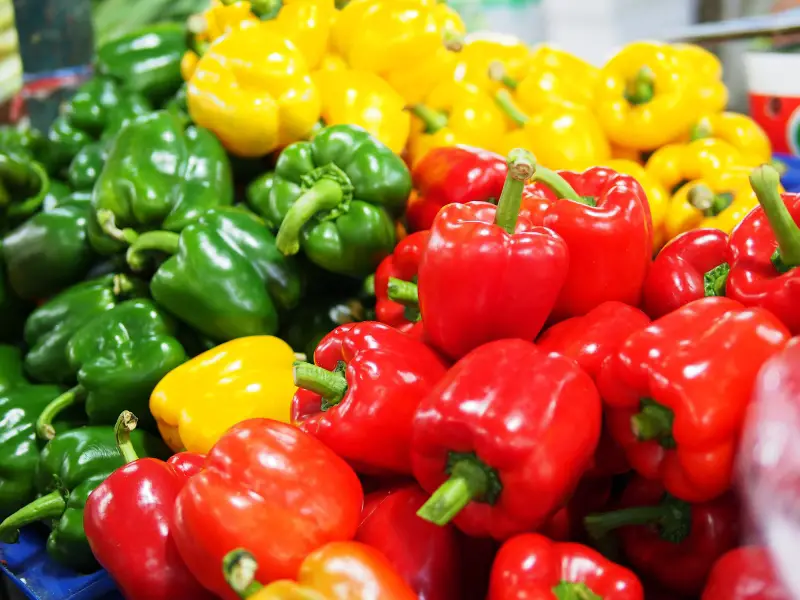Rabbits are known for their love of vegetables, but not all vegetables are safe for them to eat. One vegetable that many rabbit owners wonder about is peppers. Can rabbits eat peppers? The answer is yes but with some important considerations.
Peppers are a nutritious vegetable that can provide rabbits with the vitamins and minerals they need. However, not all peppers are created equal. Some types of peppers, such as chili peppers, can be too spicy for rabbits and may cause digestive upset. It is important to only feed rabbits mild peppers, such as bell peppers, in small amounts and as part of a balanced diet.
Rabbit owners should also be aware that peppers should not be the main source of a rabbit’s diet. Rabbits need a variety of vegetables, hay, and pellets to stay healthy. Additionally, introducing new foods to a rabbit’s diet should be done gradually to avoid digestive issues. With these considerations in mind, rabbits can safely enjoy the occasional pepper as a healthy treat.
Can Rabbits Eat Pepper Skin?
Peppers are a common vegetable found in many households, and they come in a variety of colors. They are often used in cooking and can be eaten raw or cooked. But can rabbits eat pepper skin?
The answer is yes, rabbits can eat pepper skin. In fact, the skin of the pepper is where most of the nutrients are found. Peppers are rich in vitamins A and C, which are essential for a rabbit’s health. Additionally, the skin is high in fiber, which is important for a rabbit’s digestive system.
It is important to note that while rabbits can eat pepper skin, they should not be given too much at once. Like with any new food, it is best to introduce it slowly and in small amounts. Too much pepper skin can cause digestive upset, leading to diarrhea or other digestive issues.
When feeding pepper skin to a rabbit, it is important to wash it thoroughly and remove any seeds or stems. Seeds can be a choking hazard, and stems can be tough and difficult to digest.
In summary, rabbits can eat pepper skin in moderation. It is a good source of nutrients and fiber but should be introduced slowly and in small amounts to avoid digestive upset. As with any new food, it is important to monitor your rabbit’s health and behavior after introducing pepper skin to their diet.
Benefits of Feeding Peppers to Rabbits

Peppers are a great addition to a rabbit’s diet. They provide a variety of essential nutrients that support the rabbit’s overall health and well-being. Here are some benefits of feeding peppers to rabbits:
1. Rich in Vitamin C
Peppers are an excellent source of vitamin C, which is essential for a rabbit’s health. Vitamin C helps to boost the immune system, prevent scurvy, and promote wound healing. One medium-sized red pepper provides approximately 169% of a rabbit’s daily vitamin C requirement.
2. High in Fiber
Peppers are also high in fiber, which is essential for maintaining a healthy digestive system in rabbits. Fiber helps to prevent gastrointestinal problems, such as diarrhea and constipation. It also promotes healthy gut bacteria and helps to keep the rabbit’s teeth healthy.
3. Low in Calories
Peppers are low in calories, which makes them an excellent choice for rabbits who are overweight or prone to obesity. One medium-sized red pepper contains only 37 calories, making it a healthy snack option for rabbits.
4. Rich in Antioxidants
Peppers contain a variety of antioxidants, including carotenoids and flavonoids, which help to protect the rabbit’s cells from damage caused by free radicals. Antioxidants have been shown to reduce the risk of chronic diseases, such as cancer and heart disease.
In conclusion, feeding peppers to rabbits can provide a variety of health benefits. They are rich in vitamin C, high in fiber, low in calories, and rich in antioxidants. However, it is important to introduce peppers gradually into the rabbit’s diet to avoid any digestive upset.
Risks of Feeding Too Many Peppers to Rabbits
Peppers are a healthy and nutritious treat for rabbits when given in moderation. However, feeding too many peppers to rabbits can have adverse effects on their health.
One of the main risks of feeding too many peppers to rabbits is digestive upset. Peppers are high in fiber and can cause diarrhea, bloating, and gas if given in excess. This can lead to dehydration and other health problems if left untreated.
Another risk of overfeeding peppers to rabbits is the potential for toxicity. Peppers contain capsaicin, which can be harmful to rabbits in large amounts. Capsaicin can cause irritation to the digestive tract and lead to inflammation and discomfort.
In addition, feeding too many peppers to rabbits can also lead to weight gain. Peppers are high in sugar and calories, which can contribute to obesity and other health problems in rabbits.
To avoid these risks, it is important to limit the amount of peppers given to rabbits and to monitor their digestive health closely. It is recommended to introduce peppers slowly into their diet and to only give small amounts at a time.
Overall, while peppers can be a healthy and tasty treat for rabbits, it is important to feed them in moderation to avoid any potential health risks.
How many peppers can I give my rabbit?
Rabbits can eat peppers, but it’s important to feed them in moderation. Peppers are high in vitamin C, which is essential for rabbits. However, they also contain a significant amount of sugar, which can be harmful to rabbits if consumed in large quantities.
As a general rule, rabbits should only be given a small amount of peppers as part of their diet. A small slice of pepper once or twice a week is enough to provide your rabbit with the necessary vitamins without overloading it with sugar.
It’s important to note that not all peppers are created equal. Bell peppers, for example, are a great choice for rabbits because they are low in sugar and high in vitamin C. However, hot peppers like jalapeños and habaneros should be avoided as they can cause digestive upset and discomfort for your rabbit.
When feeding your rabbit peppers, it’s important to remove the seeds and stem as they can be difficult for rabbits to digest. You should also make sure that the pepper is fresh and free from any pesticides or chemicals.
In summary, while peppers can be a healthy addition to your rabbit’s diet, it’s important to feed them in moderation and choose the right type of pepper. A small slice of fresh, seedless, and pesticide-free bell pepper once or twice a week is a great way to provide your rabbit with the necessary vitamins without overloading it with sugar.
Can Rabbits Eat Sweet Peppers?
Rabbits are herbivores, and they enjoy eating a wide variety of fruits and vegetables. Sweet peppers are one of the many vegetables that rabbits can eat. These peppers are a great source of vitamins and minerals that are important for the rabbit’s health.
Sweet peppers are a good source of vitamin C, which is essential for the rabbit’s immune system. They also contain vitamin A, which is important for the rabbit’s vision and skin health. Additionally, sweet peppers contain fiber, which is essential for the rabbit’s digestive system.
It is important to note that while sweet peppers are safe for rabbits to eat, they should be fed in moderation. Overfeeding sweet peppers can cause digestive problems such as diarrhea or bloating. As with any new food, it is important to introduce sweet peppers slowly into the rabbit’s diet to prevent any digestive issues.
In summary, sweet peppers are a safe and healthy addition to a rabbit’s diet when fed in moderation. They are a great source of vitamins and minerals that are essential for the rabbit’s health.
Related Articles:

